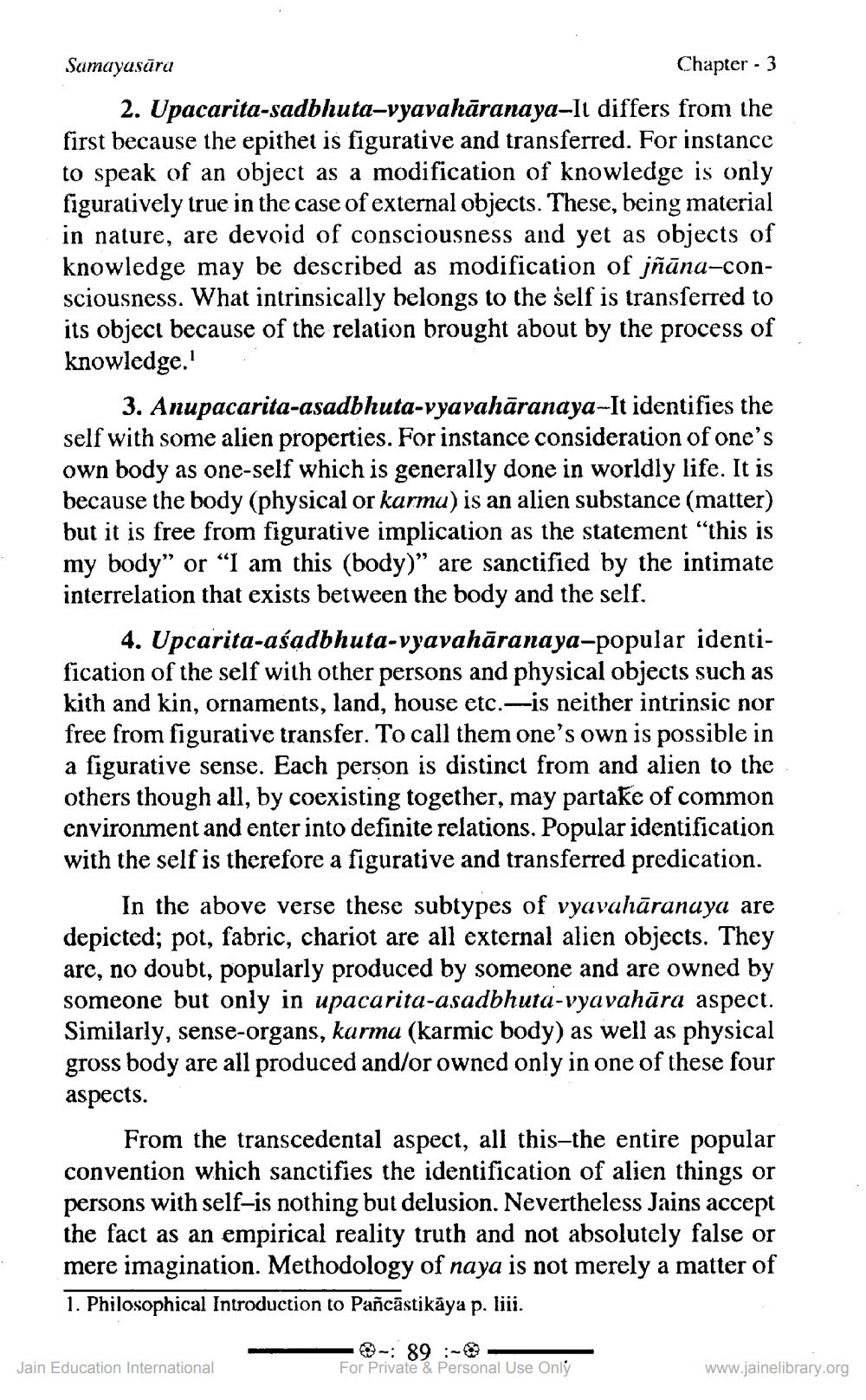________________
Samayasara
Chapter - 3
2. Upacarita-sadbhuta-vyavahāranaya-It differs from the first because the epithet is figurative and transferred. For instance to speak of an object as a modification of knowledge is only figuratively true in the case of external objects. These, being material in nature, are devoid of consciousness and yet as objects of knowledge may be described as modification of jñāna-consciousness. What intrinsically belongs to the self is transferred to its object because of the relation brought about by the process of knowledge.'
3. Anupacarita-asadbhuta-vyavahāranaya-It identifies the self with some alien properties. For instance consideration of one's own body as one-self which is generally done in worldly life. It is because the body (physical or karma) is an alien substance (matter) but it is free from figurative implication as the statement "this is my body" or "I am this (body)" are sanctified by the intimate interrelation that exists between the body and the self.
4. Upcarita-asadbhuta-vyavahāranaya-popular identification of the self with other persons and physical objects such as kith and kin, ornaments, land, house etc.-is neither intrinsic nor free from figurative transfer. To call them one's own is possible in a figurative sense. Each person is distinct from and alien to the others though all, by coexisting together, may partake of common environment and enter into definite relations. Popular identification with the self is therefore a figurative and transferred predication.
In the above verse these subtypes of vyavahāranaya are depicted; pot, fabric, chariot are all external alien objects. They are, no doubt, popularly produced by someone and are owned by someone but only in upacarita-asadbhuta-vyavahāra aspect. Similarly, sense-organs, karma (karmic body) as well as physical gross body are all produced and/or owned only in one of these four aspects.
From the transcedental aspect, all this-the entire popular convention which sanctifies the identification of alien things or persons with self-is nothing but delusion. Nevertheless Jains accept the fact as an empirical reality truth and not absolutely false or mere imagination. Methodology of naya is not merely a matter of 1. Philosophical Introduction to Pañcastikaya p. liii.
Jain Education International
-: 89 :
For Private & Personal Use Only
www.jainelibrary.org




